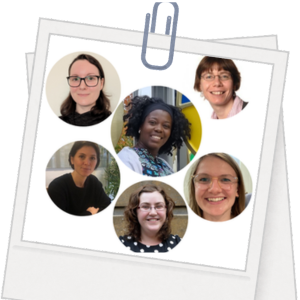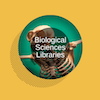Why is referencing important and how do you do it?
Reusing other people's ideas and work is a fairly accepted part of doing science. However, giving credit where it's due is a critical part of being a student, researcher, academic, or just a decent member of society. Being unclear in how your thinking developed and whose work influenced you can lead to all sorts of problems including the very serious possibility of being investigated for academic misconduct. But there is a simple way to avoid all of that stress - reference where stuff came from!
On this page we've got some quick tips to get you started as well as some more in-depth videos, courses and more.
Haven't got much time and need some answers now? Here are our top tips for referencing:
- Work out what style you need to use - if you're not sure, check your course handbook or ask a supervisor. If you can pick your own, Harvard or APA are good starting styles
- Be consistent - make sure you stick to the style you're working with and include all relevant information. Use Cite Them Right to check you've got everything
- Use a reference manager - tools like Zotero can generate references for you in a multitude of styles, saving you both time and brain space
We have a helpful handout for you to download with these same top tips for you to take away.
Going through the process of constructing good references can be a bit of a minefield when you're getting started: What do you reference? How much do you reference? What information do you need to include in your references?
Watch along with George, our Library Manager, as they work through some examples of what some typical references might look like in the Harvard style to give you an idea of what to expect when doing your own references.
We offer lots of live and self-guided teaching on getting started with navigating referencing and managing your work while you're at the University of Cambridge. We have dedicated sessions for undergraduate students and ones for postgraduate students and researchers. Check out which ones best fit what you need right now.
Finding and managing your references with Zotero
Finding and managing any reading that you need to do is another useful skill to develop. In our live introductory session we will introduce you to reference management tools, with a focused look at Zotero, to get you off to a good start. You can find further information on UTBS.
Many of our libraries offer specialised training in managing your references, such as the Psychology Library's online guide to APA Citations.
Engaging critically with your literature: reading, writing and referencing productively
This live workshop is designed to build your skills in reading and assessing research articles for your Part II studies in Biological Sciences. We will cover lots of different skills to help you manage your work and research in your final year with activities, discussion and space to ask lots of questions. More information about this workshop can be found on UTBS.
Managing your references with Zotero
While you might have been able to get away with referencing by hand at undergraduate level, as Master's or PhD students you will be dealing with more long-form research projects that contain many more references. Why not learn how to make this easy by using a reference manager such as Zotero? This live demo session will teach you how to set up your library, import references and use them efficiently in your written work.
Getting started with Research Data Management
Of course, it's not just literature you'll need to use for your research. As a scientist, you'll probably generate and/or use a lot of different data for your projects, and it's vital to learn how to manage that data properly so you can work efficiently. This workshop introduces you to the concepts of research data management and gives tips for incorporating it easily into your workflow.
Understanding copyright and your research
Copyright is a complex topic, but this session aims to give you an overview of how UK Copyright and Intellectual Property laws apply to your work, as well as introducing concepts such as third party copyright, rights retention and Creative Commons licencing.
If you haven't quite found what you're looking for with the resources on this page, you can email us to discuss your questions and needs further. We can help you via email, an online chat through Teams or Zoom, or an in-person chat in a convenient location in Cambridge.
You can email the Biological Sciences Libraries Team as a whole at sbslibraries@lib.cam.ac.uk or see if you have a subject librarian in your area on our Librarians page.









